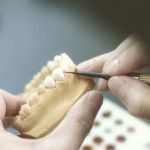Exploring the Best Sleep Apnea Treatment Options for Mild Cases
- Understanding Mild Sleep Apnea
- Lifestyle Changes to Help Manage Mild Sleep Apnea
- Alternative Therapy Options for Mild Sleep Apnea
- When to Consult a Specialist for Mild Sleep Apnea
- Long-Term Management of Mild Sleep Apnea
Understanding Mild Sleep Apnea
Sleep apnea is a common condition that affects millions of people worldwide. In mild cases, individuals experience fewer interruptions in their breathing during sleep, but these episodes can still lead to poor sleep quality, fatigue, and other health issues. It's essential to understand that while mild sleep apnea may not seem as severe as other forms, it can still have significant impacts on your daily life.
Lifestyle Changes to Help Manage Mild Sleep Apnea
For many people with mild sleep apnea, simple lifestyle changes can make a significant difference in managing symptoms. These adjustments not only improve sleep quality but also help prevent the condition from progressing. Some effective lifestyle changes include:
- Maintaining a healthy weight to reduce pressure on the airway.
- Changing sleeping positions, such as avoiding sleeping on your back.
- Avoiding alcohol and sedatives before bedtime, which can relax the muscles in the throat.
- Establishing a consistent sleep routine to promote better sleep hygiene.
Alternative Therapy Options for Mild Sleep Apnea
While CPAP therapy is the gold standard for moderate to severe cases of sleep apnea, it may not be necessary for those with mild cases. Several alternative treatment options are available, including:
- Oral Appliances: These devices help reposition the lower jaw and tongue to keep the airway open during sleep.
- Positive Pressure Therapy: Some people with mild sleep apnea benefit from using a CPAP machine or an auto-adjusting device that provides gentle air pressure without the need for a full CPAP setup.
- Breathing Exercises: Techniques such as diaphragmatic breathing and other exercises can help strengthen the muscles of the upper airway.
When to Consult a Specialist for Mild Sleep Apnea
In some cases, lifestyle changes and alternative treatments may not fully alleviate symptoms, and further evaluation by a sleep specialist is necessary. A sleep study (polysomnography) can help determine the severity of the condition and guide treatment options. If you experience excessive daytime sleepiness, frequent snoring, or worsening symptoms, it’s crucial to consult with a healthcare professional.
Long-Term Management of Mild Sleep Apnea
Managing mild sleep apnea is often about finding the right combination of treatments that work for your individual needs. Long-term management focuses on maintaining healthy habits, monitoring symptoms, and staying consistent with treatment. Regular follow-ups with your doctor will help ensure that your condition remains under control and does not progress into a more severe form of sleep apnea.
For individuals with mild sleep apnea, treatment options are often effective and can significantly improve quality of life. If you think you may have sleep apnea, it’s worth exploring these treatments to find the best option for you. Don’t let mild sleep apnea take away your rest—start taking action today to improve your sleep and overall health.







 Dr. Sam Saleh4.0 (37 review)
Dr. Sam Saleh4.0 (37 review) Cooley Smiles Everett4.0 (795 review)
Cooley Smiles Everett4.0 (795 review) Gulf Coast Advanced Dentistry4.0 (317 review)
Gulf Coast Advanced Dentistry4.0 (317 review) Dentist Of Wyckoff NJ0.0 (0 review)
Dentist Of Wyckoff NJ0.0 (0 review) Midjersey Family Dentistry4.0 (86 review)
Midjersey Family Dentistry4.0 (86 review) West Nyack Dental2.0 (85 review)
West Nyack Dental2.0 (85 review) The Importance of Oral Health Education During Pregnancy for a Healthy Pregnancy
The Importance of Oral Health Education During Pregnancy for a Healthy Pregnancy Best Tips for Brushing Your Teeth Properly for Healthy Gums: Essential Techniques for Oral Health
Best Tips for Brushing Your Teeth Properly for Healthy Gums: Essential Techniques for Oral Health Why Skipping Dental Checkups Can Lead to Bigger Oral Health Problems
Why Skipping Dental Checkups Can Lead to Bigger Oral Health Problems Advantages of Porcelain Dental Restorations
Advantages of Porcelain Dental Restorations How Can Diabetes Cause Tooth and Gum Problems? Preventing and Managing Oral Health Issues
How Can Diabetes Cause Tooth and Gum Problems? Preventing and Managing Oral Health Issues Healthy Habits for Promoting Good Oral Health and Hygiene: Tips for a Healthy Smile
Healthy Habits for Promoting Good Oral Health and Hygiene: Tips for a Healthy Smile